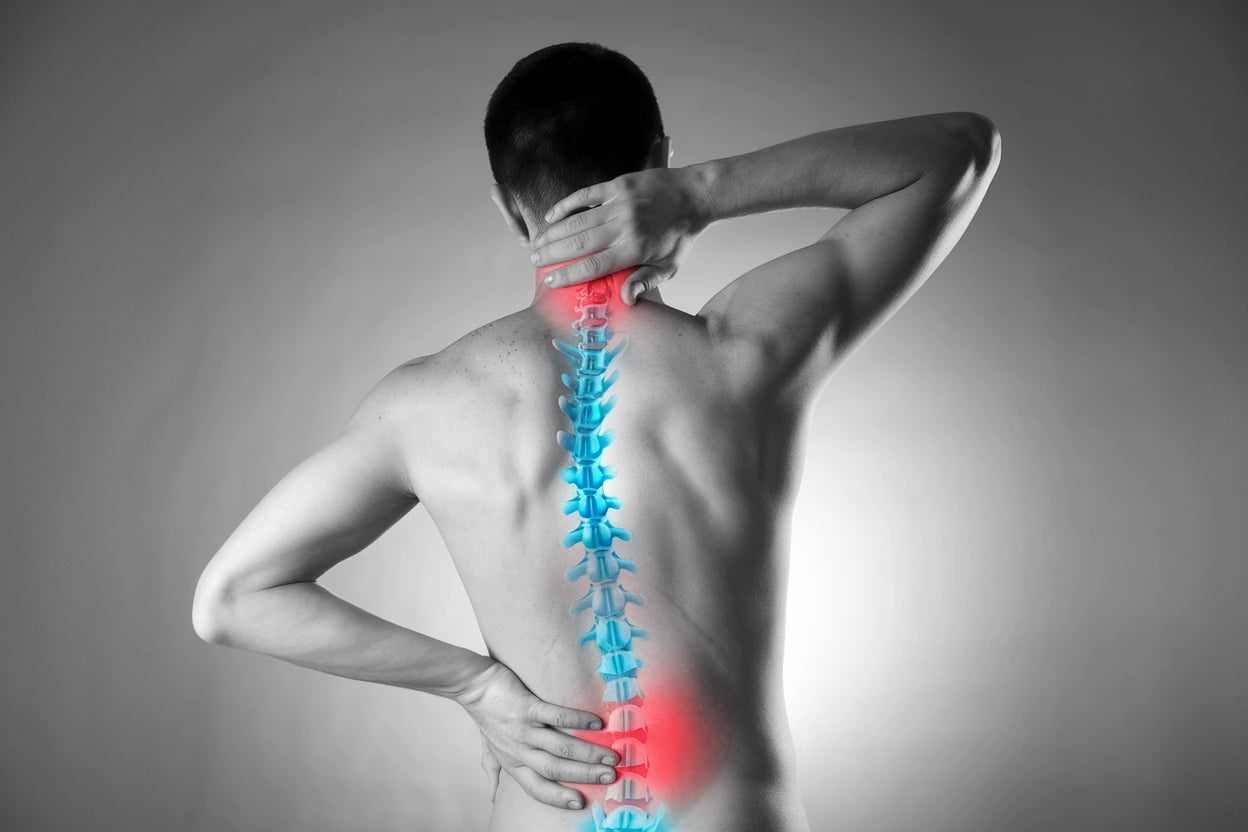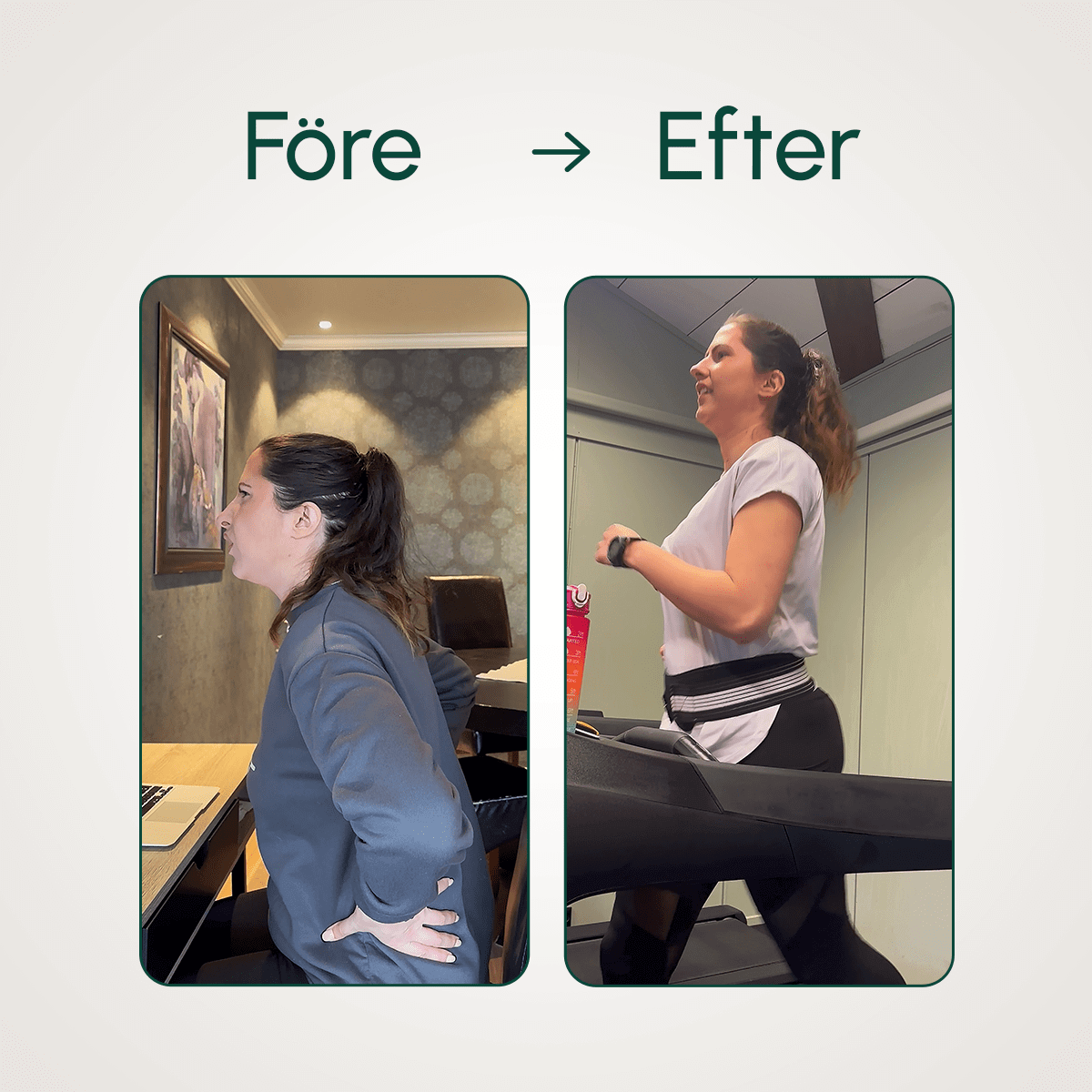Nerve Compression in the Back: Symptoms, Causes, and Treatment

A pinched nerve in the back means that a nerve is compressed and the nerves in the spine are under pressure. A pinched nerve in the back occurs when the nerves in the spine are compressed, causing pain that often radiates to the arms or legs. This condition can significantly affect daily life through limited mobility and constant discomfort. This article provides an overview of how to recognize the symptoms, understand the underlying causes, and what treatment options are available to relieve the discomfort and restore normal function.
What are pinched nerves in the back?
A pinched nerve in the back means that the nerves in the spine are compressed, often due to a herniated disc or poor posture. This can lead to radiating pain, numbness, and weakness in the legs. Early diagnosis and treatment are crucial to relieving the discomfort of a pinched nerve.
Symptoms of pinched nerves in the back
Common pinched nerve symptoms in the neck and back pain include:
- Pain radiating from the back down the legs
- Numbness and tingling in the affected area
- Muscle weakness
- Impaired sensation
- Increased pain with certain movements or positions
Pinched nerve symptoms in the back can vary depending on which spinal nerve is affected and where in the back the problem is located. Patients often describe the pain as sharp, burning or like tingling that radiates along the course of the nerve. Sometimes you can also have reduced sensation or problems moving certain parts of the body. Pinched nerve symptoms in the neck can cause discomfort that radiates into the arms, while problems in the lower back often affect the legs – something that can also be experienced with sciatica in the back .
Causes of pinched nerves in the back
Several factors can contribute to nerve compression and affect the nerves of the spine:
- Herniated disc
- Narrowing of the spinal canal (spinal stenosis)
- Osteoarthritis of the spine
- Overexertion or incorrect posture
- Injuries or trauma to the back
Pinched nerves in the back can occur in people of all ages, but are more common in older people because wear and tear on the structures of the spine increases with age. In younger people, it is often caused by a herniated disc or injuries from sports or accidents. Prolonged sitting, poor posture and repetitive movements can also contribute to nerve roots becoming pinched between the vertebrae or other structures in the back, which also occurs in lower back pain .
Diagnosis and treatment of nerve entrapment
Nerve entrapment in the back occurs when a nerve becomes trapped between bones, discs, or muscles.
This can lead to pain, numbness, or weakness that radiates into the legs, arms, or neck, depending on where the nerve is trapped.
An accurate diagnosis is important in order to determine the cause and choose the right treatment.
Physical examination
The doctor checks mobility, reflexes, and strength to identify which nerves are affected.
Advantage of BackComfort™: Provides support and stability to reduce strain on the spine.
MRI or CT scan
Imaging is used to see if discs, bones, or tissues are pressing on the nerve.
Advantage of BackComfort™: Helps maintain proper posture during healing.
Nerve conduction test
A test that measures how quickly nerve signals are conducted and whether there are signs of irritation or blockage.
Advantage of BackComfort™: Can reduce the need for medication through natural relief.
Ultrasound
Sometimes used to identify inflammation or swelling around nerves and soft tissues.
Advantage of BackComfort™: Complements other treatments by providing stability during movement.
Treatment options
Treatment for pinched nerves focuses on reducing pressure on the nerve, relieving pain, and restoring mobility.
It often begins with rest, physical therapy, and anti-inflammatory medication. In some cases, cortisone injections or surgery may be necessary for prolonged or severe symptoms.
Regular use of BackComfort™ can contribute to faster recovery and better posture in everyday life.
Important to consider
Early treatment is crucial to avoid permanent nerve damage.
If you experience numbness, tingling, or severe pain that does not go away, seek medical attention for further investigation.

How BackComfort™ can help with pinched nerves in the back
BackComfort™ offers several benefits for people with pinched nerves in the back:
- Provides support and stability to the spine
- Improves posture and reduces strain on nerves
- Helps relieve pain and discomfort during daily activities
- Can be used as a complement to other treatment methods
- Contributes to faster recovery and reduced risk of relapse
For many with pinched nerves in the back, shoulder blades or other parts of the back, BackComfort™ can contribute to immediate improvement by relieving and providing support. It gives the muscles a chance to relax and reduces pressure on the nerves. The product is designed to fit different types of back problems and can be adjusted to individual needs. A complementary tool can also be Termoreliever™ , especially if inflammation is present.
Buy nowConclusion
Pinched nerves in the back can be a painful and limiting condition, but with proper diagnosis and treatment, most people can experience significant improvements. By combining medical treatments, physical therapy, and the use of supportive devices such as the BackComfort™, many people can effectively manage their symptoms and improve their quality of life. It is important to consult a doctor for a proper diagnosis and individual treatment plan. For related problems in the neck area, see muscle tension in the neck .
Frequently Asked Questions (FAQ)
How long does a pinched nerve in the back last?
The duration varies, but with the right treatment, many people can experience improvement within a few weeks to months.
Can I exercise with a pinched nerve in my back?
Light exercise and specific exercises can often be beneficial, but consult a physical therapist for a customized program.
How quickly can I expect results with BackComfort™?
Many people experience immediate relief, but full effect may take a few days to weeks of regular use.
Can Back Comfort™ prevent nerve compression in the back?
Yes, by providing support and improving posture, BackComfort™ can help prevent overload and reduce the risk of nerve compression – especially in the case of a stiff back .
When should I seek emergency medical attention for a pinched nerve in my back?
Seek immediate medical attention if you experience sudden, severe pain, loss of bladder or bowel control, or significant weakness in your legs.

